Transcription
Sept. 18, 2013
Pablo Pina D-28079
P.O. Box 7500 D-2 122 (SHU).
Crescent City, Calif 95531
RE: Medical treatment at Pelican Bay State Prison SHU.
This is in response to an article written by a former medical doctor at Pelican Bay State prison. (Dr. Everett Allen) was forced out of his position here because he was trying to do his job and tried to treat prisoners' medical problems.
Doctor Allen is an African American and is one of the first person of color to work here, as a physician. I myself was glad to see him and felt that from him I may get the medical treatment I need. I believe that here, like just about anywhere else, racism is used in determining what type or extent of medical care prisoners will receive.
I don't want to believe that all the prison's medical staff is practicing racism, but know that if a doctor says one thing everyone else will go along with it.
I've seen that some nurses did not like what they were instructed to do, but did it because they were told to do it, or not do it. And I've seen other nurses who were more than happy to tell me that I had nothing coming. It's hard to believe they have nurses and doctors like that working here, nothing like those I've seen on the outside.
Doctor Allen spoke truthfully about the medical staff he worked around and with, and although he didn't call it racist, I do, because 90% percent of the prisoners are people of color, black and brown. And if they are the ones being denied treatment, or adequate treatment, that says it all.
I've been here since (PBSP-SHU) opened in December 1989. Along with hundreds of others I was transferred to (PBSP-SHU) because it was built specifically for inmates the prison administration views as the worst of the worst.
I have been housed in a lot of security housing units (SHUs). Unlike a lot of these other prisoners who have no disciplinary violations, or have minor violations, I have earned my place in segregation. But I have never denied that, nor complained of it.
The thing is, is that was a very long time ago. What I did as a young man does not, or should not, reflect on me as I am today. Nor does it make it acceptable to deny me medical treatment and proper care when it's obvious I need it.
On the 16 hour drive up to Pelican Bay, I enjoyed the ride down the 101 Highway, especially when we passed right by the street that my mother lives on. I could see the big palm tree in front of her house. I thought of all the times I used to walk as a child and teenager up and down San Antonio St. And I thought of when they first built an overpass over Highway 101. I had a girlfriend named Esther that lived across the 101. Now it was easier to get to her house. We used to sit on the bridge and watch the cars going down the freeway.
Now here I was passing under that same bridge leaving my old neighborhood and all its memories behind forever.
We left Tehachapi SHU on December 26, and got to PBSP-SHU on the 27th.
As we drove into PBSP I could see a lot of buildings with windows at the back of the cell. Some had their lights on. I could even see prisoners looking out of their windows at the bus.
But they were to the right, we were going left so I looked to see what it looked like. (We had heard a lot of rumors about the new SHU being built). As we got closer I saw a lot of what looked like large boxes, like storage containers. There were no windows anywhere at all. There was a small bubble thing at the top (the skylight). At first I thought this is probably just the reception area. The real units are probably in the back. But no, this was the new (SHU) where most of us would stay forever.
As I sat on the bus I watched the guards open up the baggage area on the sides of the bus and start pulling our property boxes out. At first they handled them with care. Then I guess they tired of that and began throwing boxes across the driveway. Then some guards started kicking the boxes into the air. (Later we learned they broke a lot of our television sets).
We all yelled at the guards kicking our property boxes, cussing them fools out, but they continued.
As we were taken into the reception area, as they removed the leg chains and the waist chains I could see a long corridor in front of me. I was handcuffed behind my back and escorted down the corridor until I came to a control booth. I could see two more even longer corridors to my left and right.
As we walked the guards told me that I will be handcuffed at all times that I leave my cell. And that they will strip search me each time I come out of my cell. When I got to my unit I was surprised to see that each pod or section only has eight cells. Four on the top tier and four on the bottom. I saw the shower at the end of the tier. And a door at the back of the tier, the yard door.
In the pod there was just two of us for a while. Me and Danny Troxell. I haven't seen Danny since well over 25 years when we were in C.Y.A. in Preston School of Industry, in 1971.
We talked about all the people we knew in C.Y.A. and where they're at now. Turns out most are dead, or locked it up. He told me what he did when he first got out of C.Y.A., he hitchhiked across the country, working as he went. He ended up in New Orleans, he was there for Mardi Gras. Man, I wished I had thought of that. But with my luck I probably would of ended up in Angola.
The food that we were fed was really good. The best I've ever had in any prison. I think we had a head cook that was a chef, because he hooked up the meals. There was no worse days. Everything served was top of the order. (Some of us still talk about those days.)
I was told that they don't allow smoking in the SHU, and only limited property. I had to send everything home. I think the no smoking did me a lot of justice. I used to smoke a lot, being forced to quit was a lifesaver for me. I exercised two-three times every day. And when I watched T.V. every time a commercial came on I'd drop and do push ups. And I was gaining weight and muscle mass. I was weighing 180 lbs. All muscle. I used to have my cellmate stand on my shoulders while I did squats. And he'd stand on my back as I did push ups.
A lot of the guards didn't like it. They complained about how much food we were getting, and how healthy some of us were getting. Some of them called me "No Neck" because my shoulders were so big that it looked like I didn't have a neck.
Then they got rid of our chef and must of brought in a Jack in the Box cook, because the food completely changed. From five star it went to homeless cooking, slop. Pancakes, waffles, is the main staple, rice, beans is the dinner staple. But this is prison, we know it, and don't expect it to be like home. But they also started feeding less and less, starving us. This was being done to control prisoners, about the same time they removed all the weights from all prisons. They feel it's easier to control malnourished prisoners.
I was very healthy, especially after quitting smoking. I could exercise all damn day. I had way too much energy.
But then I got sick in 1992, I don't know why or what it is. But it was bad. First I got a flue or cold that wouldn't go away. I could barely get out of bed. I couldn't eat or drink anything.
So I signed up to see the doctor. He gave me some cold medication that didn't work. He took blood tests and said they can't find anything, and wrote me off. But it persisted and months, years passed, and I complained because I started losing a lot of weight. The doctors said it was normal.
Finally, one day I went to see the doctor and saw a brother in the office. It was Doctor Allen. He was reading my file and then asked me how I felt, I told him pretty bad. Weak. I've lost a lot of weight.
Doctor Allen asked if I was taking my medication, I said what medication, and he said the thyroid medication that was prescribed for you in 1997. I said they didn't prescribe me anything. He said I must take this medication so it could balance my weight and body temperature and some other stuff.
Doctor Allen said that in one of the blood tests it was discovered that I had a thyroid problem and the physician should have explained it to me.
I went from 180 lbs down to 142 lbs, and none of the other doctors thought it was a problem.
So Doctor Allen prescribed thyroid medication and vitamins, as well as extra food trays to supplement my weight loss.
But as soon as Doctor Allen was moved to another part of the prison, another doctor practitioner came and stopped all prescriptions, saying it is not a medical issue.
I've complained for years about this problem. They ended up giving me the thyroid medication but that's all. This is what Doctor Allen was referring to, he would prescribe medical treatment then some other doctor would come and stop it. This is something I am very familiar with because I've experienced it personally. Doctor Allen also spoke about how some doctors don't want to treat prisoners, or do very little to treat them.
I believe it's because prison officials are telling them to let prisoners suffer. I say this because the doctors tell us, if we want better treatment we need to get out of the (SHU). Why should it matter where you're housed, if you require medical or dental treatment it should be provided.
Finally, prison officials and medical staff have been doing all they can to discredit Doctor Allen, trying to say he was fired for his conduct. But the truth is that he refused to follow their program of depriving prisoners medical treatment.
Other posts by this author
|
2025 dec 28
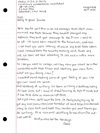
|
2025 apr 3
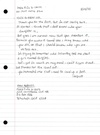
|
2025 mar 30
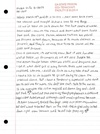
|
2025 mar 13
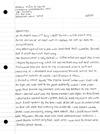
|
2025 jan 22
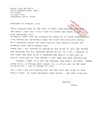
|
2024 oct 30
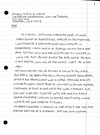
|
More... |

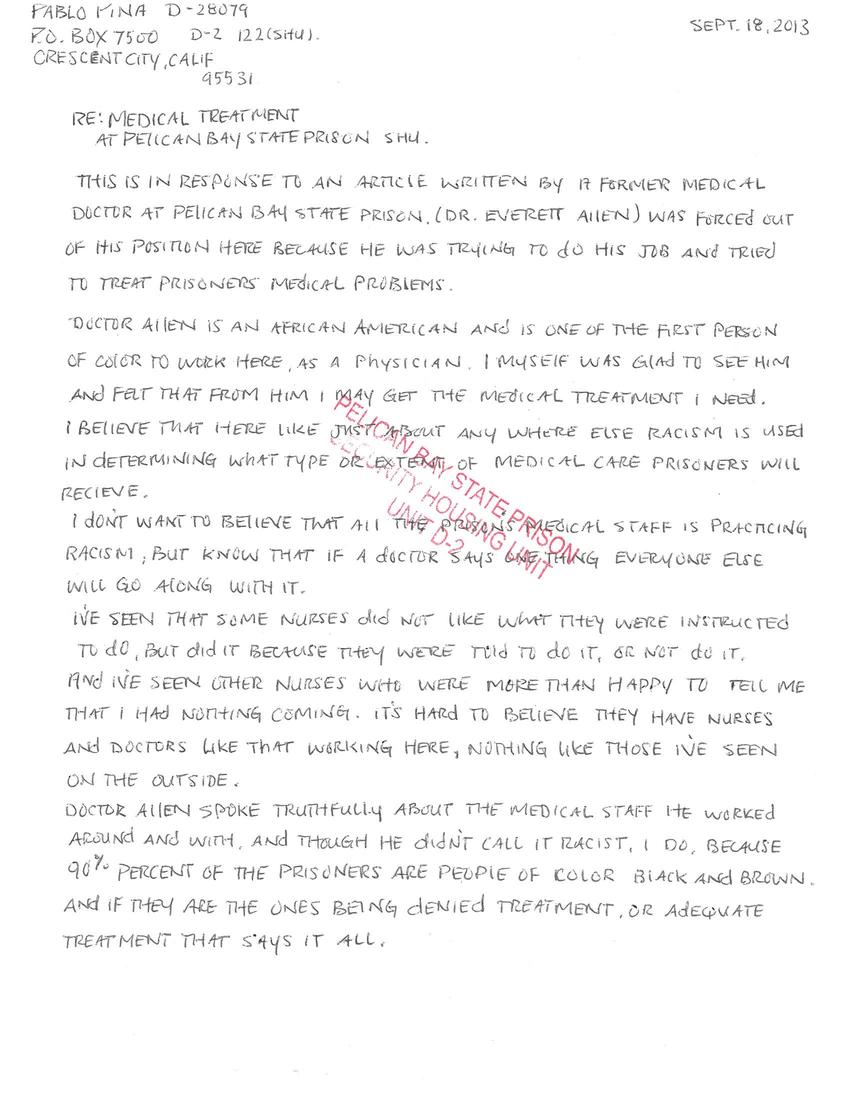
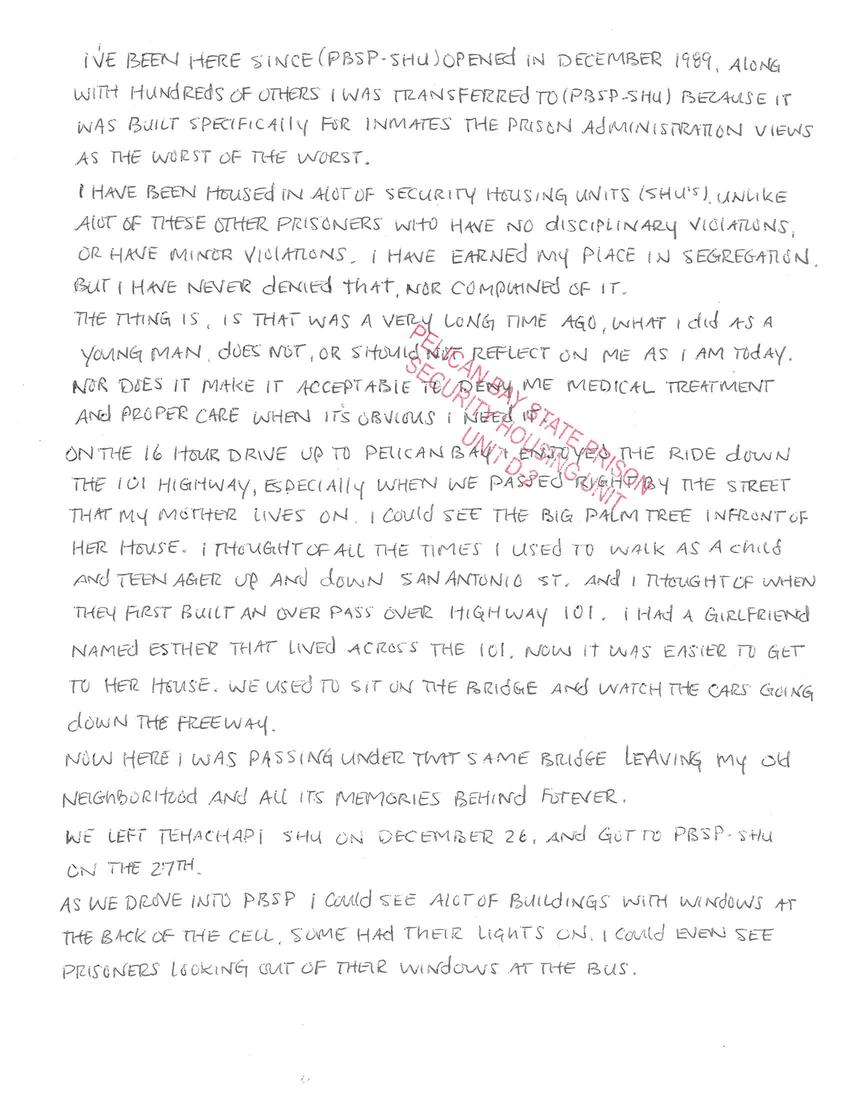
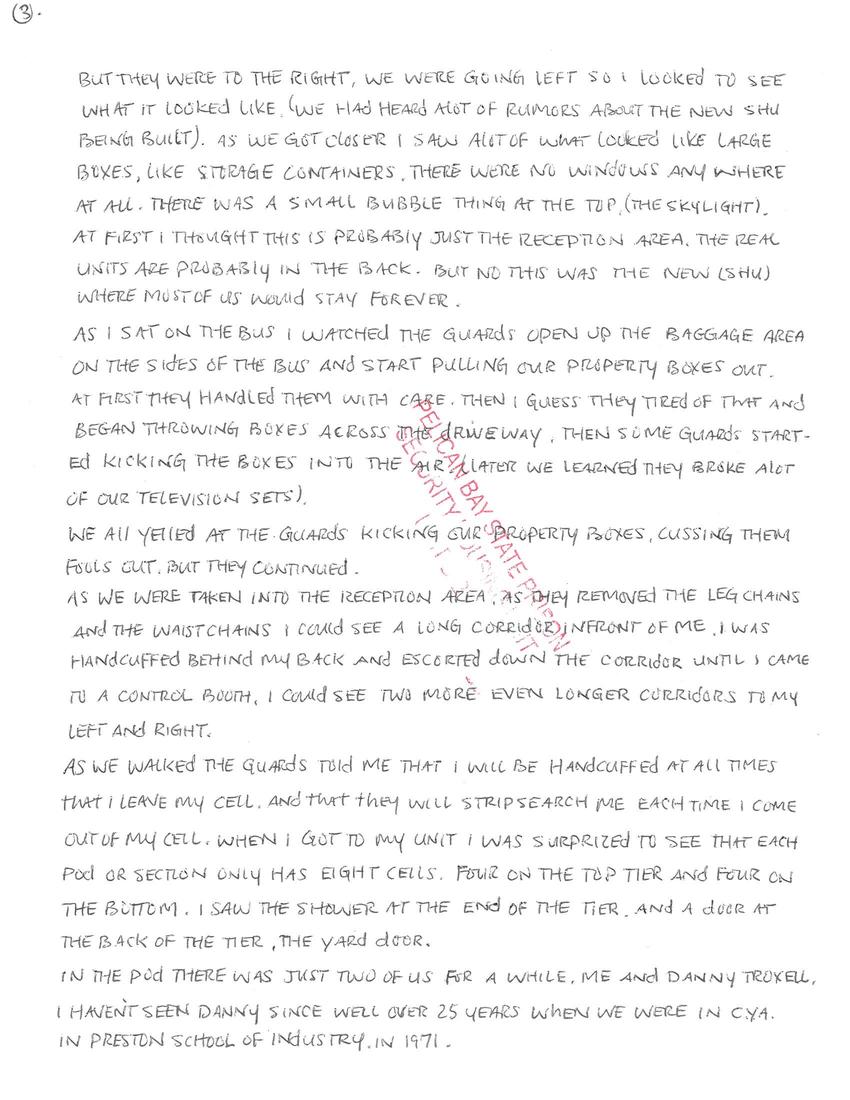
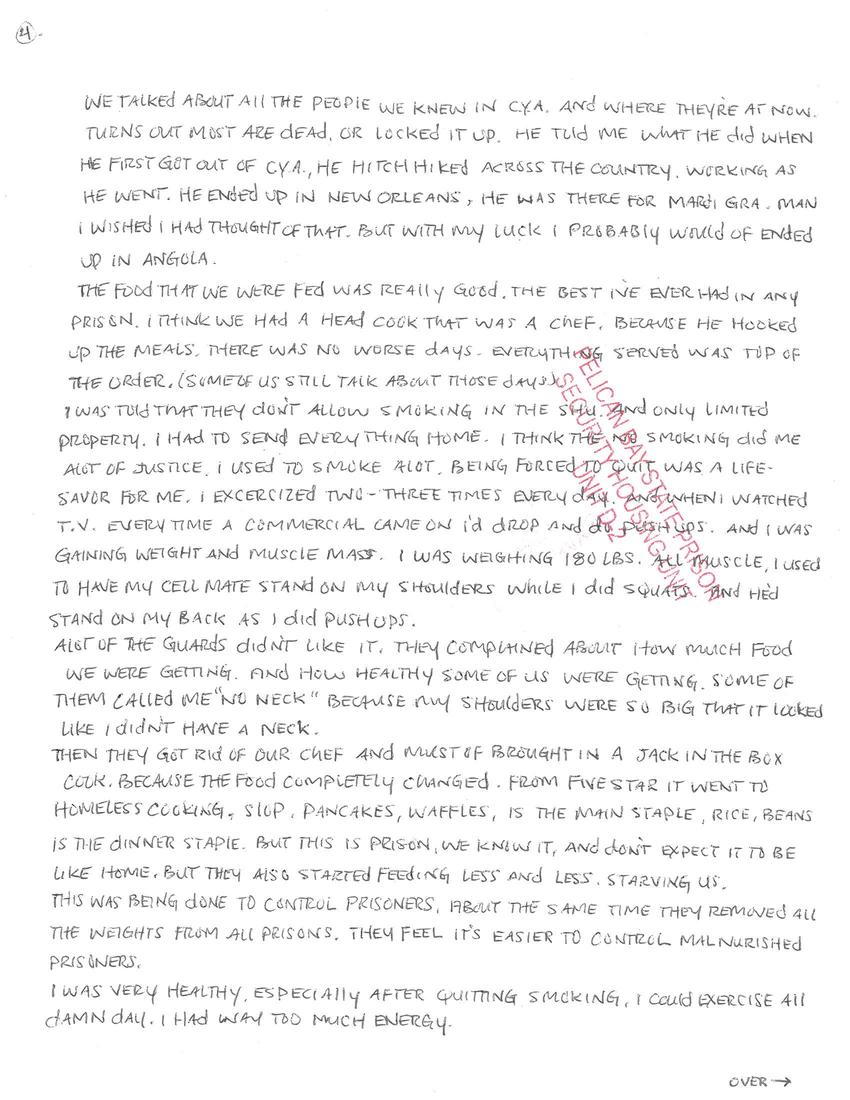
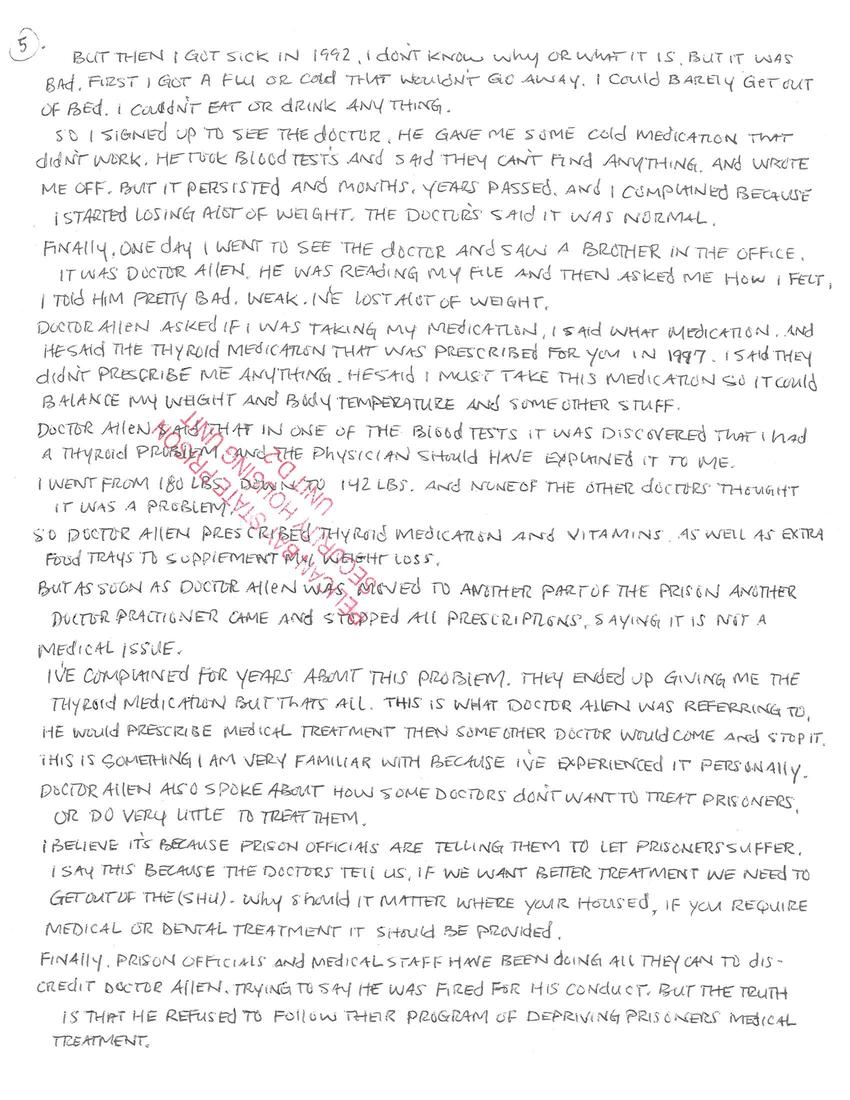

Replies (2)